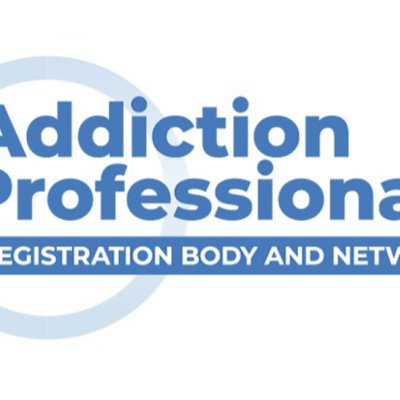We were taught how to function in this world by our parents, family, friends and society, that themselves have been taught and conditioned to function in ways that are detrimental to their own well-being. We were taught and conditioned to suppress a lot of our feelings as we were 'programmed' to believe that certain emotions and feelings are somehow wrong, unacceptable and undesirable.
We were taught to disown, ignore, be ashamed of and reject these feelings. We have not been taught how freeing it is to allow ourselves to welcome and fully feel, without judgement, any feelings and emotions that arise within us. We have not been taught how incredibly empowering it is to listen to what our feelings are trying to tell us and to take constructive action based on their message.
It is up to us to change these deeply held subconscious beliefs within us and learn to embrace and own our emotions without fear of what those emotions make us. Feeling 'negative' feelings, such as anger, jealousy and envy does not make us 'bad people'. It makes us human. It is our actions that determine who we are. We choose whether we act or react. We choose whether the action we take is going to add to who we are or whether it will detract from it. Being the best expression of ourselves as authentic and sovereign human beings is a matter of choice.
Feelings and Emotions Need to be Acknowledged, not Judged
Feelings and emotions are not good or bad. The only thing they are is important. They are a 'report card' that our body and our subconscious hold up for us and they usually carry an important message. This is why it is so vitally important to learn to allow our feelings to 'do their job', to learn to listen to them and work with them in a constructive way, so they can be processed and naturally released. Otherwise, we are in danger of simply becoming victims to the effects of our own unheeded and ungoverned emotions and feelings. Once we learn not to judge any of our feelings and emotions, but to accept them for what they are, we start experiencing an increased sense of freedom, authenticity and empowerment.
Our Feelings are Real but Not Always True
It is vitally important to remember that our feelings are always real and important but not always necessarily true. Our feelings are usually highly personalised and subjective, as they are heavily influenced by our fears, our subconscious beliefs, our life story, our associations and our internal programming. And these can all be flawed. Every subconscious 'programming' from our childhood, every false belief and every erroneous conclusion we carry in our subconscious can be viewed as a piece of coloured glass in the lenses through which we see the world.
Therefore, it is paramount to remember that our feelings can be evoked not by people's actual actions and words, but by our interpretation of these actions as they are filtered through our imperfect lenses. For example, when our partner does not do something we had hoped or expected they would do, we can view their lack of action through lenses coloured by our fear of being unlovable or through a false belief that we are not enough and we can interpret their lack of action as confirmation of these fears and anxieties. The initial feeling is very real and important as it draws our attention to the fact that we have such fears and beliefs, but it might not be real as our partner might love us very much, but is perhaps simply preoccupied with their job at the moment.
Becoming Fluent in the Language of Feelings and Emotions
Learning to understand our feelings is not dissimilar to learning a new language. It is important to give ourselves time, plenty of opportunities to practise and allow for many mistakes. The process does not only include 'learning to speak a new language' but also re-learning most of what we have learnt in the past, such as false beliefs, automatic programming and conclusion making, which have been reinforced over the course of our life. Therefore, practising mindful self-compassion is paramount.
With practice, we can become highly skilled at noticing/acknowledging our feelings, embracing them without judgement, discovering their origin and choosing what action would be best to take. And once our feelings have served their purpose, they will be naturally released as the reason for their existence will no longer be valid.
If we don't acknowledge our feelings and emotions or if we don't process them, they tend to intensify until they are heard and until some change has taken place. If we persist with our unwillingness to listen and ignore or suppress them, these feelings are then stored within our emotional body and eventually within our physical body as energy and information that is detrimental to our well-being.
If we cannot fully acknowledge or express a certain feeling or an emotion at a given moment, we can make a strong intention of setting this feeling temporarily aside and dealing with it at a later time when it is more convenient. But the key word here is 'temporarily'. It is imperative that we address our feelings as soon as we can, in order to maintain our emotional equilibrium.
It is also very important to differentiate between reacting to how we feel and acting upon it. Reactions are automatic, subconscious-driven actions that do not allow for conscious thought and are therefore taken without presence and awareness. Acting upon our feelings and emotions, on the other hand, means consciously allowing for space between us and our feelings, acknowledging the origin of that feeling, what message it has for us and consciously choosing what action we take. All this, from a space of awareness.
Five Steps to Emotional Self-Empowerment
Following are five steps in the form of simple questions that we can ask ourselves to gain a full understanding of what we are feeling and why.
1) What am I feeling?
This might seem like a trivial question. However, when we are new to the process of acknowledging what we feel, it might not come easily to identify different feelings. We might only be used to paying attention to physical sensations and not be well versed in identifying slight nuances between various feelings. We might, for example, notice a tight feeling in the chest, nausea and increased sweating but might not be sure whether what we are actually feeling is anxiety, fear or nervousness. However, with practice, it will become easier to pinpoint what exactly we are feeling.
When we are attempting to identify a feeling, it is vitally important to let go of any need to pass judgements or to draw conclusions. It is imperative that we welcome, with self-compassion and understanding, whatever we may be feeling for what it is – a message about what is happening inside of us (rather than an indication of what kind of person we are).
2) When did this feeling originate?
Feelings can arise in the moment or they can be old unprocessed feelings from the past that are merely triggered by a current situation. It is important to try to determine the true time of origin of each feeling as that will give us clarity about what action we can take. If we are not entirely sure from what time period a certain feeling is coming from, we can ask another question: Is the intensity of this feeling proportionate to what has just happened? If the answer is yes, the feeling most probably arose from the current situation. If the answer is no, it is quite possible that the current situation only triggered an old, unprocessed feeling from the past and we find ourselves 'overreacting' to the current situation. We can 'overreact' purely because we are still angry about something that happened this morning or three days ago. Or, our excessive reaction can be fuelled by unprocessed feelings from many years ago.
For example, if in the past we repeatedly felt disrespected and our boundaries were frequently being crossed and we didn't do anything to change this (perhaps at the time we didn't have the capacity to stand up for ourselves), these feelings and the fear of this situation repeating would be stored within our system and could be triggered by somebody inadvertently and only lightly overstepping our boundaries, perhaps months or years later, to which we might react by aggressively asserting ourselves. This strong reaction would be actually fuelled by years of suppressed anger and feelings of injustice from the past. The current situation would have only been the 'trigger', not the cause.
3) Is this feeling mine?
Feelings can be acquired as opposed to generated by ourselves. We can acquire them from another person, whom we have just talked to or whose company we have just been in. Let's take anger as an example. If we have just spent some time in the company of someone who is very angry about something and they talk at length about it, emanating the anger they feel, we might later find ourselves angry and short-tempered for no apparent reason. We would have allowed some of that angry energy into our system.
We can also acquire feelings, or more precisely the automated programming to generate those feelings, from people who have/had a lot of influence on us, for example, our parents. These can be slightly trickier to spot as the feelings appear to be generated by ourselves. However, upon closer examination we realise that we feel absolutely no need to feel that way and that those feelings arise from a learnt behavioural response. For example, if we were brought up by a parent who would always get angry when we accidentally spilt our drink, we might find ourselves replicating this emotional response with our children. When we examine this anger, we realise that we actually feel absolutely no need to be angry. Once we realise that it is an acquired automatic emotional response, it is much easier to release it and to start changing our response to such situations.
We can also 'tap into' the feelings that are prominent in the collective life field of humanity. These feelings often feel like 'something in the air'. Feelings that we generate ourselves, on the other hand, usually feel as if they are coming from deep within us.
4) What is this feeling telling me?
Even if we do not ask any other question, this is the one we should always ask: What message is this feeling or emotion trying to deliver? It could be simply attempting to draw our attention to how we are feeling, it could be telling us that some action needs to be taken, it could be letting us know that something 'does not feel right' or it could be even trying to warn us of some danger.
5) Do I need to take any action?
Sometimes the only action we need to take is acknowledging, accepting, allowing and embracing the way we feel. In other words 'saying YES' to what we feel is often enough to start releasing or transforming whatever feelings and emotions are arising. Sometimes, what is needed is acknowledging and fulfilling a part of us, which might require our compassion, our encouragement or simply our love. At other times, what is required will be healing various issues, traumas, injustices and unexpressed emotions from our past. On other occasions, the action needed will be expressing how we feel to another person, standing up for ourselves and being assertive or on the contrary apologising to someone whose feelings we might have hurt or to whom we might have done wrong. And sometimes, the action we need to take might involve asking for help and guidance from someone who is completely detached from the situation and whom we trust (such as a therapist, counsellor or a healer). It is vitally important that we do take any action we feel is needed, no matter how much courage it takes and how uncomfortable it might make us. For doing the right thing is going to bring us an incredible sense of freedom and empowerment.
Feelings and Emotions - an Extraordinary Compass with which to Navigate through Life
Feelings and emotions are also utilised as 'messengers' for our intuition and our heart. As we become more skilled at discerning what we feel, we will become increasingly proficient at communicating with our intuition and we will grow to cherish all our feelings and emotions for what they are: an amazing tool for navigating our internal and external reality.
The more we work with our feelings and emotions, the more transparent challenging situations will become, the more space opens within us and the more peace, strength, happiness and inner-knowing we will experience.
Understanding and governing our feelings and emotions might seem like a complex issue. However, we can look at it as one of the most exciting expeditions of our lives. The journey into our inner universe. As we learn to navigate through the terrain of our inner world, we will make incredible discoveries, come to countless realisations, free ourselves from preconceived ideas and learnt behaviours and uncover the fabric of who we truly are.



